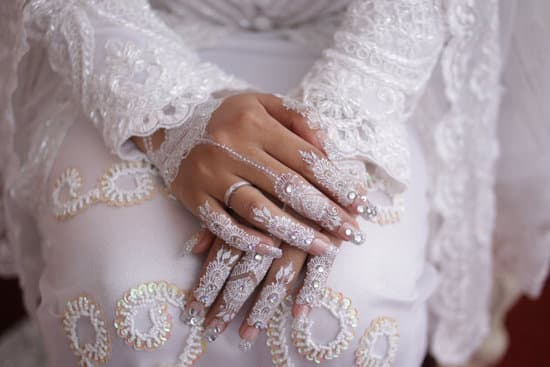What do wedding officiants do? Wedding officiants play a crucial role in the wedding ceremony, overseeing and leading the proceedings. Their responsibilities go beyond just legalities and paperwork; they are also responsible for creating a personalized and meaningful experience for the couple and their guests. In this article, we will explore the role of a wedding officiant, their qualifications, legal requirements, and the process of customizing and performing a wedding ceremony.
A wedding officiant is a person who is authorized to perform marriage ceremonies. They are responsible for not only legally binding the marriage but also creating a memorable and personalized experience for the couple and their loved ones. From meeting with the couple to understand their preferences to coordinating the rehearsal and performing the actual ceremony, an officiant plays a vital role in ensuring that everything runs smoothly on one of the most important days of a couple’s life.
Throughout this article, we will delve into various aspects of being a wedding officiant – from education and training required to legal paperwork involved, as well as the process of creating and performing a customized ceremony. By understanding the duties and responsibilities of a wedding officiant, couples can better appreciate their importance in making their special day truly unforgettable.
Education and Training
Becoming a wedding officiant requires more than just an interest in performing ceremonies. Education and training are essential components of this role, as they provide the necessary skills and knowledge to conduct a meaningful and legally-binding wedding ceremony. Most states require wedding officiants to be ordained or have other legal credentials, such as a justice of the peace designation. While the specific requirements vary by location, obtaining the proper qualifications is crucial for aspiring officiants.
One of the most common ways to become a wedding officiant is through online ordination. Several religious organizations and online ministries offer ordination programs that allow individuals to become legally authorized to perform weddings. Some states may have additional registration or licensing requirements, so it’s important for officiants to familiarize themselves with the local laws regarding marriage solemnization.
In addition to legal qualifications, many couples seek officiants who possess strong public speaking skills and are capable of crafting personalized and heartfelt ceremonies. As such, individuals interested in becoming wedding officiants may benefit from public speaking courses and workshops that can help them develop their presentation abilities. Furthermore, having experience in event planning or coordination can also be advantageous for handling various aspects of the wedding ceremony.
| Educational Requirements | Training Programs |
|---|---|
| Online ordination | Courses in public speaking |
| Justice of the peace designation | Event planning experience |
Legal Requirements
When it comes to officiating a wedding, there are important legal requirements that wedding officiants must follow. Officiants play a crucial role in ensuring that the marriage is legally valid, and this involves understanding and fulfilling specific legal obligations. So, what do wedding officiants do when it comes to the legal aspects of officiating a wedding? Let’s take a closer look at the legal requirements and paperwork involved in this important role.
Understanding Marriage Laws
One of the essential duties of a wedding officiant is to have a deep understanding of marriage laws in the state or country where the wedding will take place. This includes being knowledgeable about any specific requirements for obtaining a marriage license, as well as knowing which individuals are legally allowed to perform marriage ceremonies. Officiants must also be aware of any restrictions or regulations related to the content of the ceremony itself.
Completing and Filing Legal Documents
In addition to conducting the actual ceremony, wedding officiants are responsible for overseeing and completing all necessary legal paperwork. This often involves ensuring that the marriage license is filled out correctly, signed by all necessary parties (including witnesses), and filed with the appropriate government office within a specified timeframe. Officiants must pay close attention to detail when handling these documents to ensure that everything is completed accurately and in compliance with relevant laws.
Adhering to Legal Requirements During the Ceremony
During the wedding ceremony itself, officiants must ensure that they adhere to all legal requirements for solemnizing marriages in their jurisdiction. This may include using specific language or phrases as dictated by law, verifying the identity of the couple getting married, and confirming that all necessary documentation is in order before proceeding with the ceremony. Understanding and following these legal requirements is critical for officiants in order to validate the marriage and ensure its legality.
Meeting With the Couple
When it comes to officiating a wedding, one of the most important aspects is meeting with the couple to understand their preferences and customize the ceremony. This initial meeting is crucial in creating a personalized and meaningful wedding ceremony that truly reflects the couple’s love and values. During this meeting, the wedding officiant takes the time to get to know the couple, their story, and what they envision for their special day.
Getting to Know the Couple
During the meeting with the couple, the wedding officiant spends time getting to know them on a personal level. This may involve asking about how they met, what their relationship means to them, and their vision for the future. Understanding these details helps the officiant tailor the ceremony script to suit the couple’s unique love story.
Customizing the Ceremony
After getting to know the couple, the wedding officiant works with them to customize every aspect of the ceremony. This could include incorporating personalized vows, readings, or rituals that hold significance for the couple. The goal is to create a ceremony that feels authentic and meaningful for both the couple and their guests.
Offering Guidance
In addition to customizing the ceremony, part of what do wedding officiants do during this meeting is offering guidance and support to couples as they plan for their big day. Whether it’s advice on structuring the ceremony or suggestions for meaningful touches, officiants are there to help couples navigate this important aspect of their wedding planning process.
Writing the Ceremony
When it comes to creating a personalized and meaningful wedding ceremony script, wedding officiants play a crucial role in ensuring that the couple’s special day reflects their unique love story. Here are some key steps that officiants take when writing the ceremony:
1. Understanding the Couple’s Story: The first step in creating a personalized ceremony script is for the officiant to meet with the couple and learn about their relationship. This may involve asking them about how they met, what qualities they admire in each other, and significant milestones in their journey together.
2. Incorporating Personal Touches: Once the officiant has gathered information about the couple, they can begin to infuse personal touches into the ceremony script. This may include incorporating anecdotes, quotes, or rituals that hold special meaning to the couple.
3. Crafting Meaningful Vows and Readings: Wedding officiants also play a pivotal role in helping couples write or choose their vows and readings for the ceremony. They can offer guidance and suggestions to ensure that these elements reflect the couple’s values and emotions.
In addition to these steps, wedding officiants also collaborate closely with the couple throughout the process of writing the ceremony script, offering support and guidance as needed to create a truly memorable experience for all involved. Ultimately, their goal is to help bring to life a wedding ceremony that authentically represents the love and commitment shared between the couple.
Overall, what do wedding officiants do when it comes to writing the ceremony? They work tirelessly to craft a unique and personalized script that honors the love story of each couple while ensuring that their values and traditions are respectfully incorporated into this important milestone in their lives.
Rehearsal and Coordination
When it comes to the role of a wedding officiant, the responsibilities extend beyond just presiding over the ceremony. A crucial part of their duties involves coordinating the wedding rehearsal and ensuring that everything runs smoothly on the big day. This phase of the process is essential for making sure that the ceremony unfolds seamlessly, allowing the couple to focus on each other without any distractions or interruptions.
Coordinating the wedding rehearsal starts with scheduling a time that works for everyone involved, including the wedding party and any family members who may need to be present. During this meeting, the officiant will guide everyone through a run-through of the ceremony, from walking down the aisle to exchanging vows. They will also ensure that any readings or special rituals are incorporated seamlessly into the proceedings.
In addition to orchestrating the logistics of the ceremony, officiants also play a vital role in managing any last-minute nerves or uncertainties among both the couple and their wedding party. By providing clear instructions and offering reassurance, they help create an environment where everyone feels confident and comfortable with their roles in the ceremony.
Ultimately, this attention to detail and support during the rehearsal ensures that when it comes time for the actual wedding, all parties can focus on celebrating this momentous occasion without any added stress or anxiety.
| Responsibilities | Duties |
|---|---|
| Coordinating Wedding Rehearsal | Ensuring smooth execution of ceremony logistics |
| Guiding Through Run-Through | Incorporating readings and special rituals seamlessly |
| Managing Nerves & Uncertainties | Providing instructions & reassurance for all parties |
Performing the Ceremony
When it comes to the actual wedding ceremony, the role of a wedding officiant is crucial. Here are some of the key duties that wedding officiants perform during the ceremony:
- Leading the Vows: One of the most important responsibilities of a wedding officiant is leading the couple through their vows. This may involve reciting traditional vows or helping the couple customize their own vows to reflect their unique relationship. The officiant sets the tone for this momentous occasion and guides the couple through this important aspect of their wedding ceremony.
- Ensuring Legal Requirements Are Met: Another essential duty of a wedding officiant is ensuring that all legal requirements are met during the ceremony. This includes making sure that any necessary paperwork is completed and filed properly, as well as ensuring that the marriage license is signed by all required parties. Attention to detail in this area is crucial to ensure that the marriage is legally binding.
- Setting the Tone: Beyond just leading vows and fulfilling legal requirements, wedding officiants also play a vital role in setting the overall tone and atmosphere of the ceremony. They have a significant influence on how meaningful, personal, and memorable this special event will be for both the couple and their guests.
As we can see, wedding officiants do much more than simply lead a couple through their vows. Their attention to detail, guidance in ensuring legal compliance, and ability to set an emotional tone are paramount in creating a beautiful and memorable wedding ceremony experience for everyone involved.
After the Ceremony
In conclusion, the role of a wedding officiant is multi-faceted and essential to the smooth and meaningful execution of a wedding ceremony. From meeting with the couple to understand their preferences, to writing a personalized ceremony script, coordinating the rehearsal, and ultimately performing the ceremony itself, wedding officiants play a crucial role in ensuring that the couple’s special day is exactly as they envision it.
Additionally, after the ceremony is over, officiants continue to provide support by completing important follow-up tasks such as signing the marriage license and offering continued guidance and assistance to the newlyweds.
After the ceremony has concluded, one of the most important tasks for a wedding officiant is signing the marriage license. This step is crucial in legally solidifying the marriage and ensuring that all requirements have been met.
Furthermore, providing ongoing support and guidance to the couple can be incredibly valuable as they navigate this new chapter in their lives. Whether it’s offering advice on maintaining a healthy relationship or simply being a source of comfort during any challenges that arise, wedding officiants continue to play an important role in the lives of the newly married couple.
In essence, what do wedding officiants do extends far beyond just performing a ceremony – they are guides, advisors, and legal representatives who are dedicated to making sure that every aspect of a couple’s wedding day and beyond goes smoothly. Their expertise and support are invaluable in creating a memorable and stress-free experience for couples as they begin their journey together as spouses.
Frequently Asked Questions
What Does the Officiant Say at a Wedding?
The officiant at a wedding typically starts by welcoming the guests and then proceeds with an opening message or reading. They may also share thoughts on love, marriage, and the couple’s relationship, and then guide the couple through their vows and exchange of rings.
The officiant will pronounce the couple as officially married before leading them in a closing statement or blessing.
Who Officiates a Non Religious Wedding?
For a non-religious wedding, an officiant can be someone like a judge, justice of the peace, notary public, or a secular or humanist officiant who has been legally recognized to perform weddings. Couples who prefer a non-religious ceremony often choose these types of officiants to conduct their wedding without any religious elements.
Can Your Officiant Say Your Vows?
A wedding officiant typically doesn’t say the vows for the couple but rather guides them through their exchange of vows. This usually involves the officiant prompting the couple to repeat after them as they recite their vows to each other.
The couple may opt for traditional vows or write their own, and the officiant facilitates this part of the ceremony by providing cues and support as needed.

I have been involved in marriages for over 20 years helping couples and singles understand more about them.





